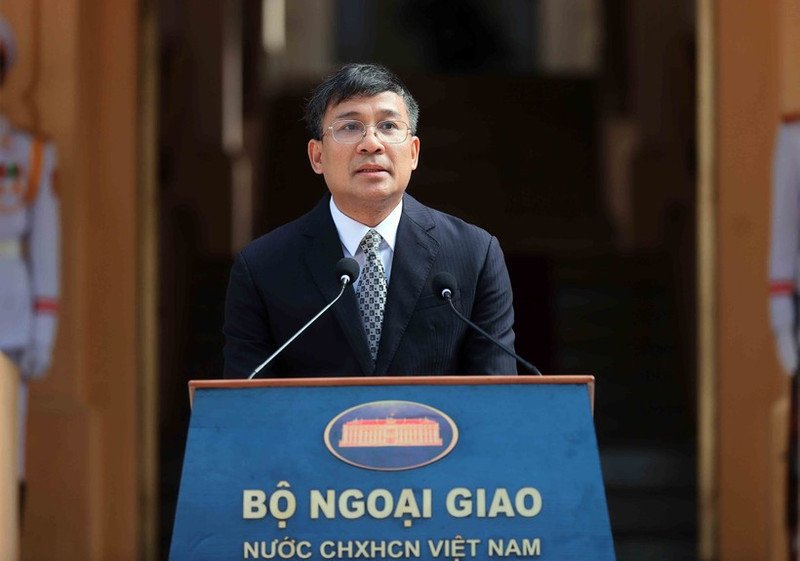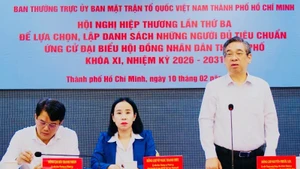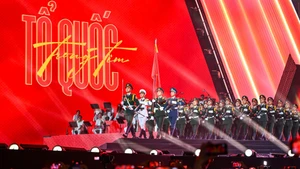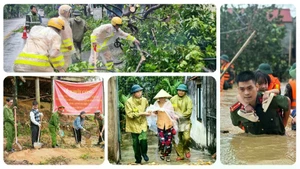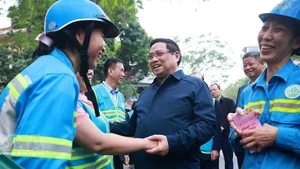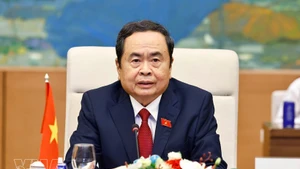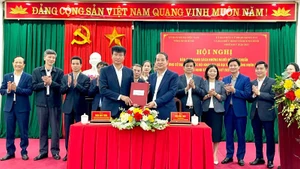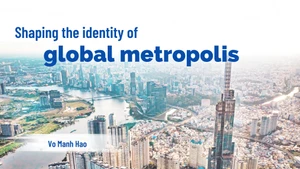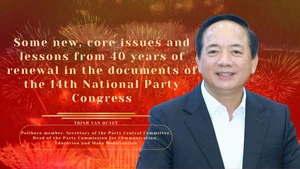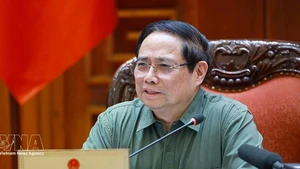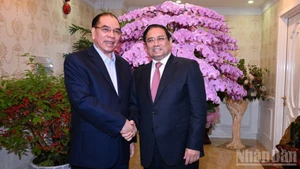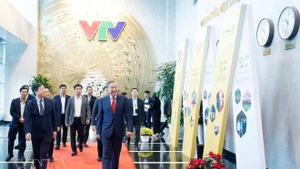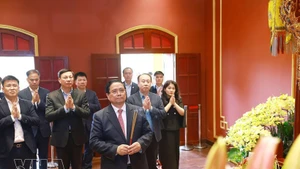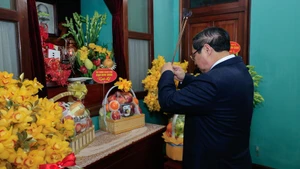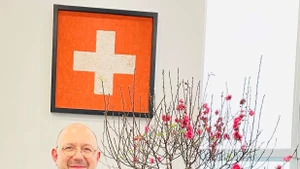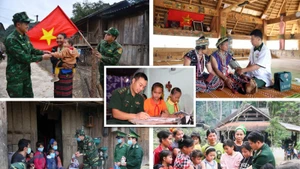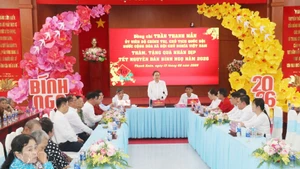Speaking to the press ahead of President Cuong’s working visit to China from September 2 - 4, Vu stressed that this will be the President’s first trip to China in his new capacity as the head of state. The visit coincides with the 75th founding anniversary of Vietnam - China diplomatic ties and the Year of Viet Nam - China Humanistic Exchange.
The trip follows the attendance of member of the Standing Committee of the Political Bureau of the Communist Party of China (CPC) Central Committee and Chairman of the Standing Committee of the National People’s Congress (NPC) of China, Zhao Leji, along with a high-ranking delegation of the Chinese Party, State, and People’s Liberation Army, at a ceremony in Ha Noi celebrating the 80th anniversary of August Revolution and National Day of Viet Nam. This reflects the mutual support between the two Parties and two countries throughout their historic struggles for independence and in ongoing cause of national construction and development.
During the trip, President Cuong is expected to meet with top Chinese leaders. This is an occasion for the two sides to reinforce high-level common perceptions on strengthening political trust, promoting substantive and mutually beneficial cooperation, addressing differences, and maintaining a peaceful, stable environment for development, thus contributing to peace and prosperity in the region and beyond.
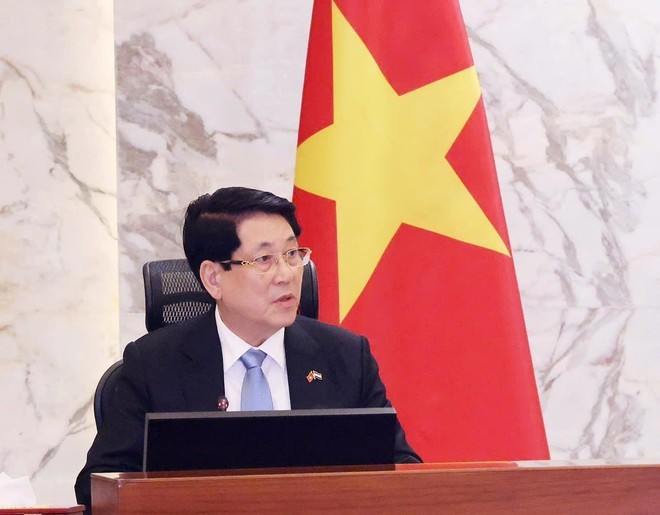
Regarding future cooperation, Vu noted that Viet Nam and China share many complementarities. The nearly 1,450km land border fosters trade and people-to-people exchanges, while both countries share cultural and historical similarities and similar political systems. Economically, their structures are mutually supportive: China is a global powerhouse with a vast consumer market and advanced technologies, while Viet Nam is entering a pivotal stage of industrialisation and modernisation with long-term development ambitions.
In this context, closer cooperation between the two countries is both natural and essential, Vu said. He emphasised that amid global and regional uncertainties, strengthening the bilateral ties and leveraging complementarities align with both countries’ foreign policies and broader trends.
Looking ahead, Vu stressed the need to roll out practical measures to build a community with a shared future that carries strategic significance under six major orientations:
Firstly, it is necessary to step up theoretical exchange and policy coordination, share development experience, and enhance cooperation in multilateral forums to jointly address challenges and manage differences for peace, security and development of each country.
Secondly, he emphasised the significance of creating breakthroughs in trade, investment, tourism, infrastructure, and advanced science and technology, particularly in digital transformation, AI, quantum technology, 5G and 6G, biotechnology, and hi-tech agriculture.
Thirdly, it is essential to enhance people-to-people exchanges, tourism, and cultural cooperation based on shared traditions and geographical proximity to reinforce friendship and strengthen the social foundation for long-term sustainable ties.
With the depth of the bilateral relations, clear strategic orientations from senior leaders, and a stable, peaceful environment as a foundation, Viet Nam and China will be able to maximise their cooperation potential, deliver tangible benefits to their people, and contribute meaningfully to regional and global peace and development, Vu concluded.
